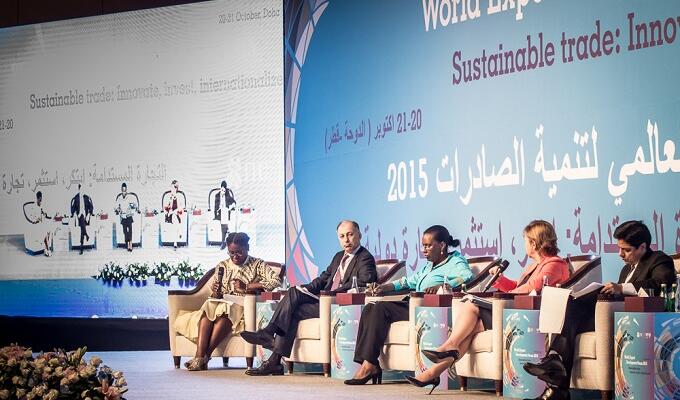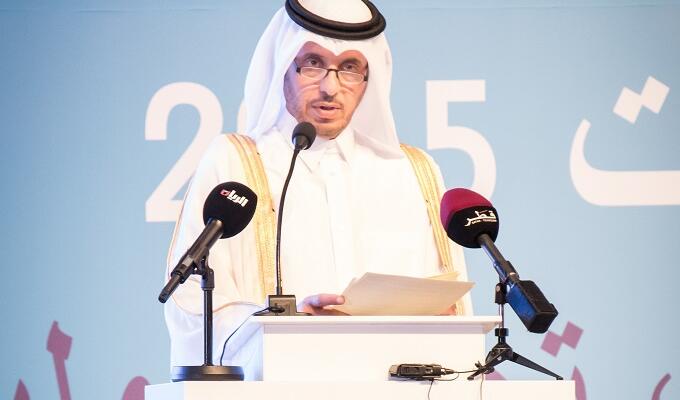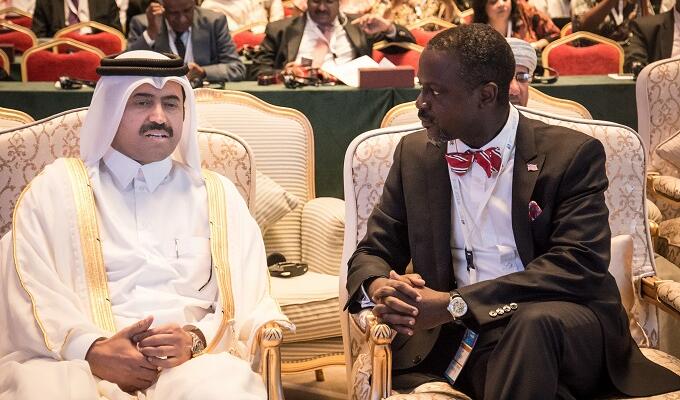



WEDF: Enabling trade through sustainable development and innovation
The first day of the World Export Development Forum (WEDF) 2015, being held in Doha, Qatar, heard policymakers and trade practitioners call for a range measures to ensure that trade becomes more sustainable and more inclusive.
At a session looking at ‘Unlocking the Potential of the Post-2015 Development Agenda’, speakers pointed to the need of reducing trade costs. This, they agreed, could play a key role for developing countries and their small and medium-sizedenterprises (SMEs) to reap the benefits of connecting to international trade and investment, they said.
And while Aid for Trade and public-private partnerships (especially at the local level) had an essential role to play in trade inclusion and the new Global Goals more broadly, they said that nothing could replace determined domestic policymaking, implementation and accountability.
SME competitiveness
WEDF’s second plenary session, ‘SME Competitiveness: Why it Matters’, took its cue from the recent launch of ITC’s new flagship publication, the SME Competitiveness Outlook.
During the session, speakers pointed for the need to identify constraints to trade which will allow for small and medium-sized enterprises to flourish. They also agreed that greater e-connectivity and internet access are not only closely connected to innovation and economic growth, but also help reduce conflict.
Innovative funding
For SMEs to thrive, there is a need to think more creatively to on how to improve access to finance and making credit more available. This was the unison message of speakers during the session on ‘Innovative Funding to Internationalize SMEs’, who also said special attention must be placed on making funding available to women-owned businesses.
But it is not just about access to credit, the speakers said: a broader ecosystem of support, such as for financial literacy in subjects like trade finance, and risk sharing, for example in government credit guarantee schemes, is necessary to help SMEs succeed.
Innovation and entrepreneurship
During what was perhaps the liveliest session of WEDF’s first day, ‘Innovation and Entrepreneurs: Trends That Shape the Trade Landscape’, speakers battled it out over issues ranging from e-commerce and digital literacy, and how these can help spur economic growth and innovation.
They also pointed to changing patterns of trade, including a shift from a ‘linear economy’ to the concept of a ‘circular economy’, described as move from a resource extractive model to one based on resource efficiency and closed-loop, restorative ecosystems. Developing a business strategy based on concepts such as “reduce, re-use and recycle” is now a key element to maintaining a competitive position in the market, the audience heard.
Speakers also said that there is a need for SMEs to understand the challenges and opportunities arising from the rise of global value chains and prepare themselves to participate in this new dynamic. International agencies such as ITC, the speakers said, have a key role to play in supporting SMEs in enhancing their competitiveness so they can reach their full potential and maximize the benefits from a more global and interconnected world.
Learn more about the World Export Development Forum.



